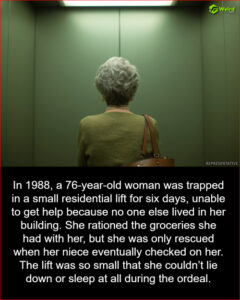“Unveiling the Hidden Struggles: 12 Telltale Signs Your Child May Have Been Forced to Grow Up Too Soon”
Ever heard the phrase, “You’re growing so fast!” and felt a chill instead of joy? That well-meaning compliment can sometimes mask a painful reality: the painful experience of childhood disappearing too soon. The phenomenon, often referred to as the “hurried child syndrome,” shines a light on the early maturity forced upon some children who not only hit milestones ahead of their peers but also shoulder burdens that can leave them gasping for breath when they need parental guidance most.
Those who traverse this rough path can carry a heavy backpack of emotional baggage into adulthood. They might radiate wisdom, but that’s just a clever disguise for the emotional complexities they face. So, do you know the signs that show someone grew up too quickly? Let’s dive into a list of 12 telltale signs that illuminate what it means to have your childhood taken away too soon and to carry that narrative into later life. You might just recognize these traits in someone close to you—or even in yourself!
“You’re growing so fast!” always looks like a compliment until you realize it might stem from having a childhood whisked away prematurely. The hurried child hits milestones earlier than most, has high expectations laid on them, and is often forced into responsibilities and emotional burdens well beyond their years.
People who had to grow up quickly often carry the weight of their past into adulthood, where the signs (and sometimes cracks) start to show. If you’ve ever met someone who seems wise beyond their years or unusually self-reliant, chances are they had to grow up faster than they should have.
Here are 12 telltale signs that indicate someone had to grow up way too fast.
1. Hyper-Independence

If someone can’t seem to ask for help, even when it’s clear they’re drowning, it’s often because they’ve been conditioned to believe they must handle everything on their own. These people believe that relying on others is a luxury they can’t afford.
This hyper-independence might look like an incredible work ethic or an ability to “do it all,” but underneath, it’s often a sign they never had the chance to be cared for and can be traced back to childhood trauma.
2. Difficulty Relaxing or Having Fun

Fun and relaxation can feel strange for folks who grew up too quickly because their early years were more about surviving. Instead of carefree moments, they were busy caring for siblings, working early jobs, or handling tough family situations.
When they finally get some time to unwind, they might feel guilty or restless. It’s like they’ve got a never-ending to-do list in their heads, and taking a break feels irresponsible, even when they’ve totally earned it.
3. High Emotional Intelligence but Low Emotional Availability

Someone who had to mature quickly often developed an exceptional understanding of how other people experience emotions. They are experts in reading the room, comforting others, and navigating complex emotional dynamics. This comes from having to handle grown-up situations before they had the tools to do so.
However, this emotional intelligence is often paired with emotional exhaustion. They might be able to support others but have intense personal struggles and struggle to regulate themselves emotionally.
4. Feeling Older Than Their Peers

Do you feel “older” than your peers? Does it feel like you’ve lived several lifetimes by the time you hit adulthood? People who grow up too fast have been through things that most of their friends can’t even imagine, creating a sense of isolation.
While their peers are concerned with buying the latest fashion trends, they might worry about paying their youngest sibling’s college fees. They may gravitate towards people or activities that feel more mature, leaving them out of sync with their age group.
5. Being Overly Responsible

Over-responsibility feels like second nature to someone who has had to mature quickly. Whether it’s their job, family, or friends, they have to take on more than their fair share of obligations. This manifests as a vicious cycle into adulthood, where they are always the ones taking care of others.
They’ve spent so much time being the “adult” in the room that they can’t turn it off. This can lead to burnout, as they rarely allow themselves the grace to say no or step back.
6. Guarded Relationships

Someone who was forced to mature early approaches relationships cautiously. Trusting others can feel risky when you’ve had to rely only on yourself for so long. When you have spent your childhood only trusting yourself, it can be difficult to start learning to trust others again in adulthood.
They might seem emotionally unavailable or distant, even in close relationships, because letting their guard down makes them feel uncomfortable and vulnerable. This guardedness may keep them from having long-lasting, meaningful relationships.
7. Avoiding Risk

Growing up too fast often means being hyper-aware of risk and danger. They may have been in situations where things went wrong, and as a result, they learned to always be on guard.
In adulthood, this can translate to avoiding anything that feels risky. Risk avoidance becomes a coping mechanism to maintain control in a life that may have felt out of control during the formative years.
8. Seeking External Validation

Someone thrown into the adulting deep end might have missed out on consistent emotional support or praise during their early childhood. As a result, they tend to seek validation from external sources.
This can lead to a constant chase for approval and success as they try to fill the void left by their unmet emotional needs.
9. Struggling With Setting Boundaries

Forced early maturity causes people to struggle with setting boundaries because they were never taught how. They’ve spent so much time putting others’ needs ahead of their own that they never learned where to draw the line.
They may find themselves compulsively overcommitted to family, work, or friendships and unable to say no. They might feel obligated to always be available, believing their worth is tied to how much they can do for others.
10. Perfectionism

Perfectionism often arises in people who had to become mini-adults before their time. When you’re forced into responsibility too early, making mistakes feels like a luxury you can’t afford.
They develop a mindset that everything will fall apart if they aren’t perfect. This leads to them setting impossibly high standards, not only for themselves but also for those around them. This makes relationships extraordinarily difficult to start and maintain.
11. Chronic Overthinking

When someone is used to navigating grown-up situations as a child, they often become overthinkers. Every decision, whether big or small, feels weighty because they’re accustomed to the consequences of mistakes being larger than life.
As adults, they might spend too much time analyzing every choice, fearing the unknown, and trying to control outcomes.
12. Inability to Trust Authority Figures

If a child had to be an adult, the adults in their life were likely unreliable or even abusive. This may have been due to neglect, family dysfunction, or other challenging circumstances.
They learned not to trust authority figures or depend on them for guidance. This mistrust can carry into adulthood, where they’re skeptical of bosses, leaders, or even doctors.
Raise Emotionally Secure Kids with These 15 Key Phrases

Emotionally secure kids are more resilient, empathetic, and better equipped to handle life’s ups and downs. The annual birthday gifts and occasional trips to the park are great, but how do you talk to your kids every day? The words we use as parents play a significant role in shaping their emotional well-being
Raise Emotionally Secure Kids with These 15 Key Phrases
14 Important Manners Parents Aren’t Teaching Kids Anymore

Raising well-rounded kids requires more than getting them to shower and take their vitamins. Good manners are the little things that go a long way in shaping our kids into kind, considerate adults.
14 Important Manners Parents Aren’t Teaching Kids Anymore
I’m a Language and Literary Studies (Honors) graduate with 11 years of experience in magazine and blog writing and content creation. I’m passionate about storytelling for change and believe in the power of words to make a difference. My writing is thought-provoking, accessible, and engaging, focusing on the Psychology of human behavior, complex social issues, personal experiences, and the latest trends. I’m a wife and a Mom of three.












